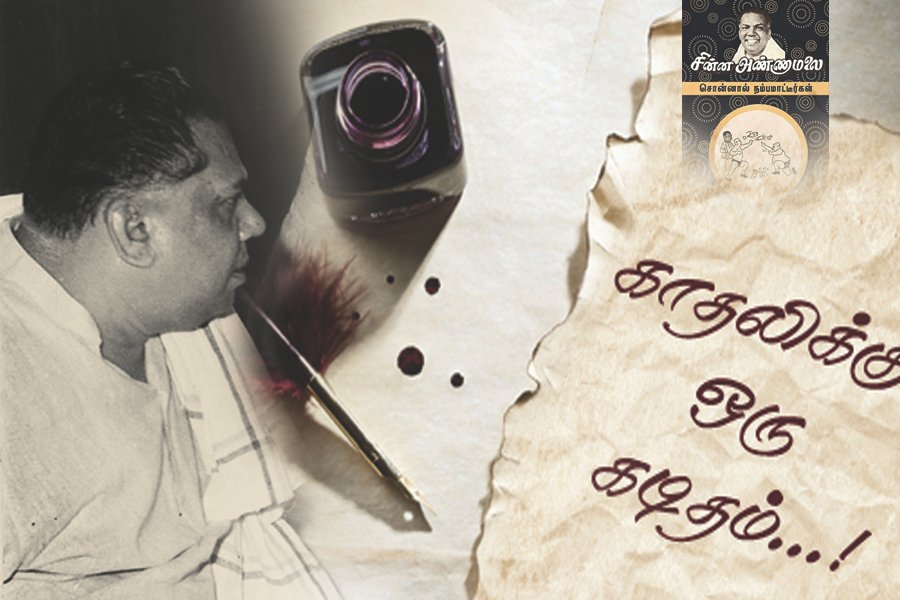Read in : தமிழ்
Attitudes towards race, colour and gender are constantly changing depending on time and place. People holding lofty ideals in the past have sometimes left records that today appear regressive. Autobiographical jottings flesh them out. I read one such piece of writing recently.
Chinna Annamalai brought out the Tamil version of Mahatma Gandhi’s Harijan newspaper. Rajaji introduced Annamalai to Gandhi at the Hindi Prachar Sabha in Chennai. Gandhi has written about his meeting in Harijan.
Chinna Annamalai was among those who took part in the Quit India movement. He was jailed in the Tiruvadanai prison in the year 1942. He was so popular that people broke into the prison and freed him. Several people died in the police firing during that raid. Kamarajar has written that this was a unique happening, likely the first time ever that people stormed a prison to free someone within 24 hours of his or her jailing.
Chinna Annamalai was among those who took part in the Quit India movement. He was jailed in the Tiruvadanai prison in the year 1942. He was so popular that people broke into the prison and freed him. Several people died in the police firing during that raid
Chinna has written several books besides publishing Rajaji’s works. He has written autobiographical articles. In lucid prose he has written about how he became a writer in an essay, Sonnal Namba Maatteergal (You won’t believe what I am saying).
“A milk delivery boy was the reason for my becoming a writer. His name was Karuppaiah.
I was illegally locked up at the Devakottai jail for participating in the August 1942, Quit India protests. The police had permitted me to get food and clothes from my home. Karuppiah was the name of the person who brought me food every day. He was dark in colour, had curly hair. He was called Milkman Karuppiah. I was quite young then.
One day when he brought food for me, he handed over a letter saying a young woman had given it. I asked him what her name was. Her name was Meyyammai and she was quite taken up with me, Karuppiah said.
I read the letter. The writing was round and feminine. The letter addressed the reader as someone who has won her heart. It said, ‘I have seen you. I was enthralled by your public speaking. You are doing penance in jail. I am doing penance that I come to jail.
I am a woman. My parents will not allow me to go where I want. I eagerly await your release from prison.’
The letter was signed, Meyyammai.
I was thrilled after reading the letter. I inquired about the woman with Karuppaiah. The prison was a barrier and the police presence was intrusive, so he couldn’t say much. But whatever he said got me interested.
Karuppaiah had brought pen and paper so I could reply to it. I gave much thought to it and then wrote the letter. Words poured out of me with celebration.
I read what I had written and was surprised I could write so well. I gave the letter to Karuppaiah.
The letters continued. I tried to provide variety in my writing in my replies.
I felt I and Meyyammai had become close just through letters. I often resorted to hyperbole. I said we were two lives, one soul and so on.
Meyyammai wrote asking for a silk saree. I gave money to Karuppaiah to satisfy her. Then she asked for a wrist watch. I gave Rs 300 to Karuppaiah for that. The she asked for gold bangles. I gave money for that also. I took pleasure in giving her expensive gifts.
Then I was shifted to Madurai jail. After completing the prison sentence, I was released and came home.
I was eager to see Meyyammai whom I knew only in letters. When I went home, I looked around for Karuppaiah. I was shocked to find that he had been put in jail for stealing. Next day, I went to meet the police sub-inspector at the Devakottai police station. He welcomed me and said that my love letters were very good.
I was taken aback. ‘What love letter,’ I said.
‘The ones you wrote to Meyyammai,’ he said.
‘How did you get them…’
He said that when Karuppaiah was arrested for a theft case, the police searched his house where they found my love letters. When the police asked him, Karuppaiah confessed that he had played a trick and written the letters as Meyyammai. And he stole money from me by duping me. The policeman said that Karuppaiah had cheated me quite well indeed.
I became angry but didn’t know how to react and became silent. The sub-inspector said I was a great writer. I excelled in writing love letters, he said.
I was upset that I had been cheated but went home with the satisfaction that I had become a writer.’
Chinna Annamalai’s piece of candour is praiseworthy. The article shows his views on women even as he wrote about his participation in the freedom struggle.
The article shows how skin colour and gender relations were viewed in those times.
Read in : தமிழ்











